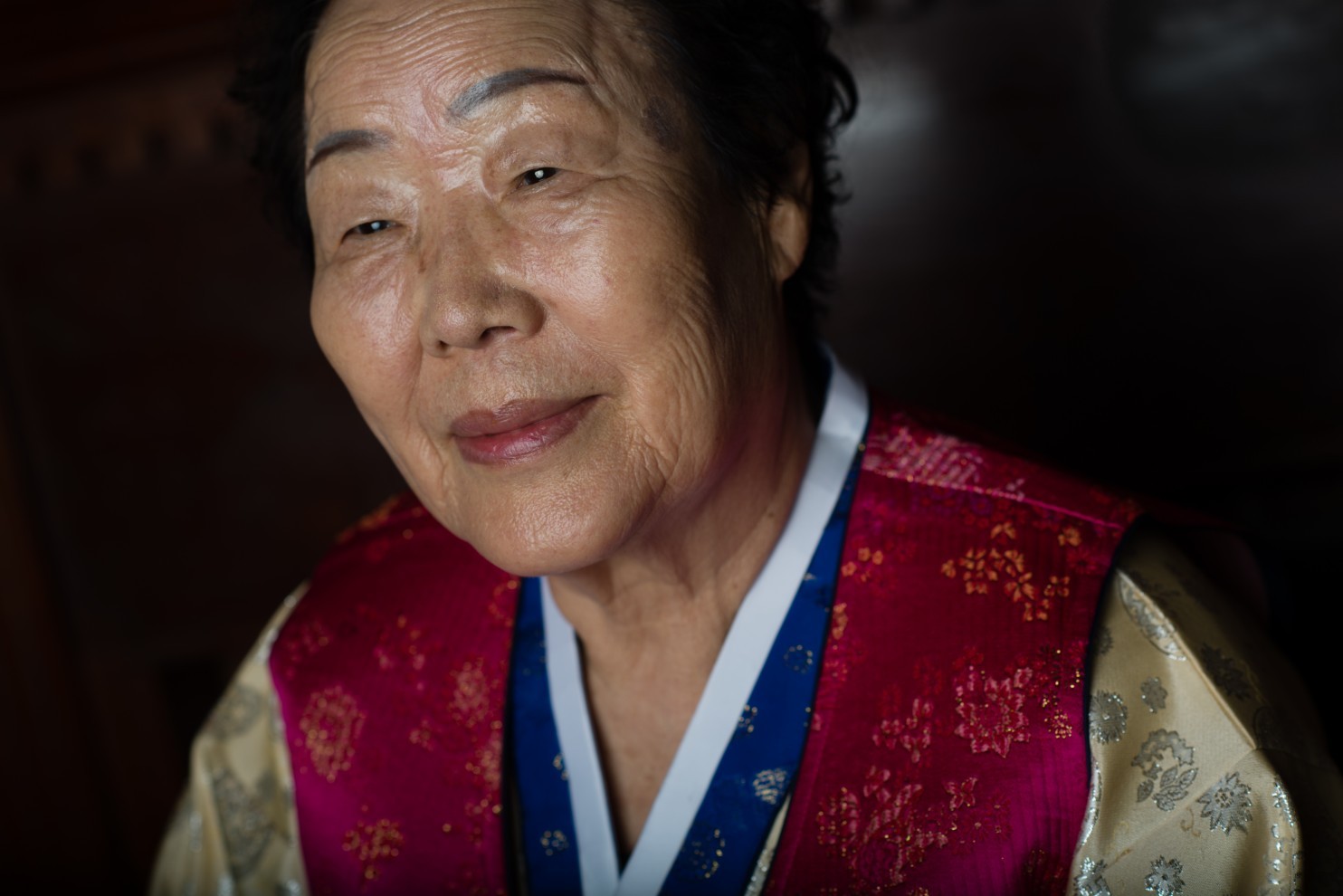May 13, 2015
Guest post by Brian Niiya, Densho Content Director
The first mention of Japanese American incarceration in response to Abe’s politicking came in a speech and statement by Congressman Mike Honda, one of the harshest American critics of Japanese equivocation on the “comfort women” issue. As a member of the California State Assembly, he authored a 1999 resolution calling on Japan to acknowledge, apologize, and accept responsibility for the “comfort women,” and upon his election to Congress, got the house to pass the similar House Resolution 121 in 2007.
The recent visit of Japanese Prime Minister Shinzo Abe to the U.S. and his invitation to address the U.S. Congress has brought renewed attention to the issue of the so-called “comfort women,” and the Abe administration’s continued efforts to downplay that issue both in Japan and internationally. Two well-publicized reactions to Abe’s visit and the “comfort women” issue mentioned the Japanese American World War II incarceration, citing it as an example of the importance of acknowledging historical wrongdoings.
The story of the “comfort women” has become well known in recent decades, at least in broad outline. During World War II, the Japanese military directly or indirectly forced tens of thousands of young girls and women from Korea, China, and other areas it conquered to serve as sexual slaves for the pleasure of Japanese soldiers. Though prior Japanese administrations have acknowledged Japanese responsibility for these abuses—most notably the 1993 Kono Statement, named after Yohei Kono, then the chief cabinet secretary of Japan—Abe’s administrations have attempted to dial back such statements. During his first administration in 2006-07, he claimed that there was no evidence that the women had been coerced or that the government—as opposed to private entities—had been the ones to set up the “comfort women” system. In his current administration, he has appealed (unsuccessfully) to the U.N. to water down their 1996 report that called on Japan to apologize and to pay reparations.
The first mention of Japanese American incarceration in response to Abe’s politicking came in a speech and statement by Congressman Mike Honda, one of the harshest American critics of Japanese equivocation on the “comfort women” issue. As a member of the California State Assembly, he authored a 1999 resolution calling on Japan to acknowledge, apologize, and accept responsibility for the “comfort women,” and upon his election to Congress, got the house to pass the similar House Resolution 121 in 2007.
Honda brought surviving Korean “comfort woman” Yong Soo Lee as a guest to Abe’s address before a joint session of Congress. Honda had called on Abe to apologize for this episode in Japanese history during his Congressional speech, but Abe declined to do so. In making his case, Honda cited the Japanese American incarceration as an example of why “governments must not be ignorant of their pasts.” Honda went on to write:
“Our government made a mistake, but they apologized for it, and healed many wounds as a result. Japan must now do the same. It must show the maturity of a democratic country, apologize for its mistake, and thereby gain the trust of her sister Asian nations.”
The second mention came in the May 5 “Open Letter in Support of Historians in Japan” that was signed by 187 American and Canadian historians of Japan, issued after Abe’s visit and his failure to address the “comfort women” issue. The letter notes that the “comfort woman” issue “has become so distorted by nationalist invective in Japan as well as in Korea and China that many scholars, along with journalists and politicians, have lost sight of the fundamental goal of historical inquiry, which should be to understand the human condition and aspire to improve it.” Given this, it makes it clear that whatever disagreement and uncertainties there may be about the details, that “the ‘comfort women’ system was distinguished by its large scale and systematic management under the military, and by its exploitation of young, poor, and vulnerable women in areas colonized or occupied by Japan.” The historians call for a “just history” that “must resist national and gender bias, and be free from government manipulation, censorship, and private intimidation.”
Though primarily aimed at scholarship, the historians also write that the Japanese government has an opportunity “to show leadership by addressing Japan’s history of colonial rule and wartime aggression in both words and action.” In doing so, it acknowledges that “[m]any countries still struggle to acknowledge past injustices,” citing specifically that “[i]t took over forty years for the United States government to compensate Japanese-Americans for their internment during World War II.”
Densho supports the crux of what both Congressman Honda and the historian signatories have to say. As with the historians, we too believe in the goal of a “just history,” whether of the “comfort women” or any other contested historical topic, and we provide the resources that we do towards that aim. We also stand with Congressman Honda in calling for Japan to accept responsibility for their actions and to apologize while a few of the women victims are still alive. The comparison with our redress movement is an apt one: the apology would not only help to heal wounds of
the past, but would make it less likely that anything similar can ever happen again.
the past, but would make it less likely that anything similar can ever happen again.
